
The liberal leanings of Israel
As a special series the Sydney Star Observer will spotlight each week a different country around the world examining the legal framework and cultural acceptance of homosexuality as experienced by an expat currently residing in Sydney.
For the first country, we turn our attention to Israel, where the conflict between Israel and the Palestinians dominates headlines. In an area known for its hard line against homosexuality, Israel is forging ahead to create equality for its gay and lesbian population.
In March this year a 33 year-old Palestinian from Jenin (a Palestinian-governed city in the West Bank) made international news when the Israeli authorities gave him a permit to live with his Israeli partner in Tel Aviv. He argued that should he return to Jenin he faced death threats from fellow Palestinians who disapproved of him being gay.
It is estimated that between 300 and 600 gay Palestinians have sought refuge in Israel.
“I support Israel offering asylum to gay Palestinians who fear for their safety in the West Bank,” says Danny Gutman, a 33 year old Israeli currently living in inner Sydney.
“I feel for the gay Palestinians. We are all human and gay.”
Over the past 20 years, Israel has enacted laws enabling equality for its gay and lesbian citizens. These laws have facilitated an acceptance of sexual diversity within Israeli society.
“The shift began when El Al [the Israeli national airline] granted free flight tickets to partners of same-sex employees,” says Danny.
The Supreme Court ruled in November 1994 that El Al’s granting free flight tickets only to heterosexual partners was discriminatory.
The Court system appears to be responsible for many changes in the discriminatory laws in Israel, including granting recognition of same-sex partners as adoptive parents in 2000.
“The family unit is very important in Israeli society. I have many gay friends who would like to adopt a child,” says Danny. “I don’t feel that the gay population in Australia has the same degree of family orientation.”
Another famous case includes a Colombian national who overstayed his visa in 2004. The Tel Aviv District Court ruled that the Government could not deport the Colombian because he had an Israeli partner, regardless of whether the relationship was same-sex or not.
Israeli same-sex couples enjoy a raft of entitlements including property tax benefits, inheritance tax and housing aid.
Despite these equality laws, Israel does not permit same-sex marriage.
“Marriage in Israel is completely controlled by the religious authorities. I think once civil unions are enacted then same-sex recognition will be possible,” says Erez (name substituted) an Israeli currently living in the eastern suburbs.
However, judicial Israel does recognise same-sex marriages performed overseas. In 2006, the High Court ruled in favour of a couple married in Canada who wanted their marriage registered in their homeland.
Erez says there is a great deal of open discussion of politics in Israel, where every Israeli has an opinion and is not afraid to voice it. It is this freethinking that has led to an acceptance of diversity and pluralism.
Dor Shapira, spokesman for the Israeli Embassy in Canberra says, “Israel is a liberal country, where everyone can live his or her own life as they choose. There is no difference between man or woman, no difference in sexuality.”
This open acceptance is probably best demonstrated when Dana International, a transgender singer won the Eurovision Song Contest in 1998.
Danny says, “When Dana won Eurovision no one really cared that she was transgender. Everyone was just happy that Israel had won.”

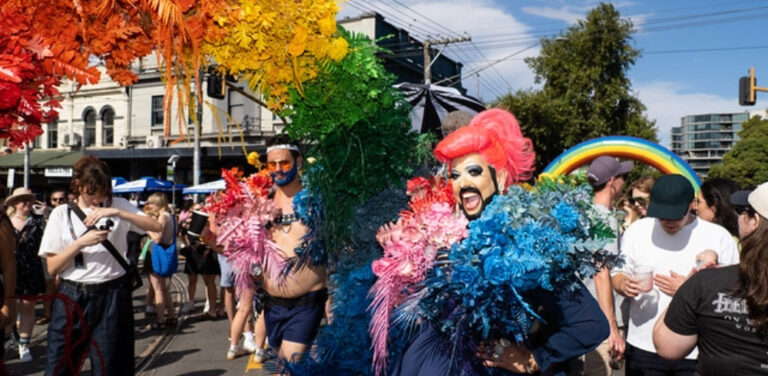


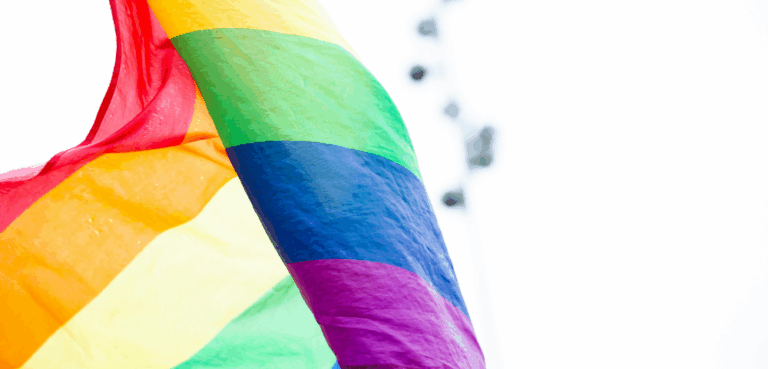


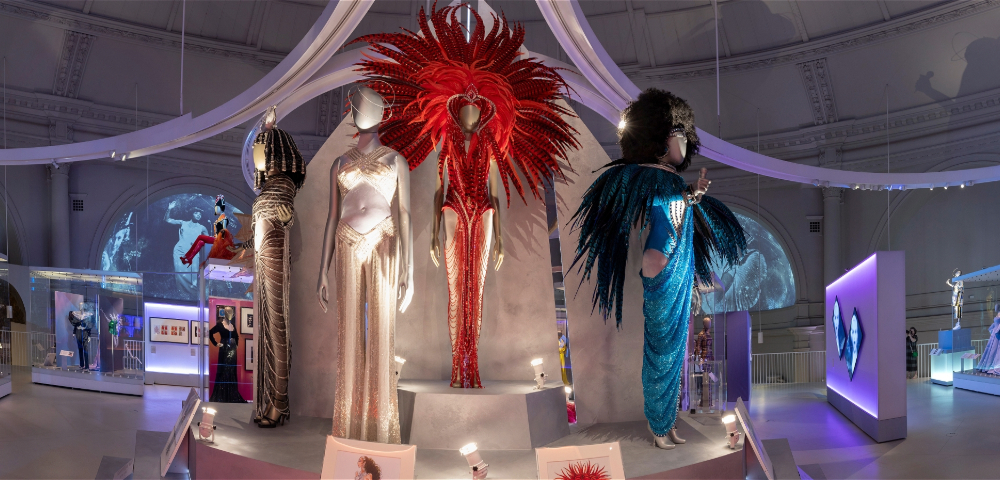
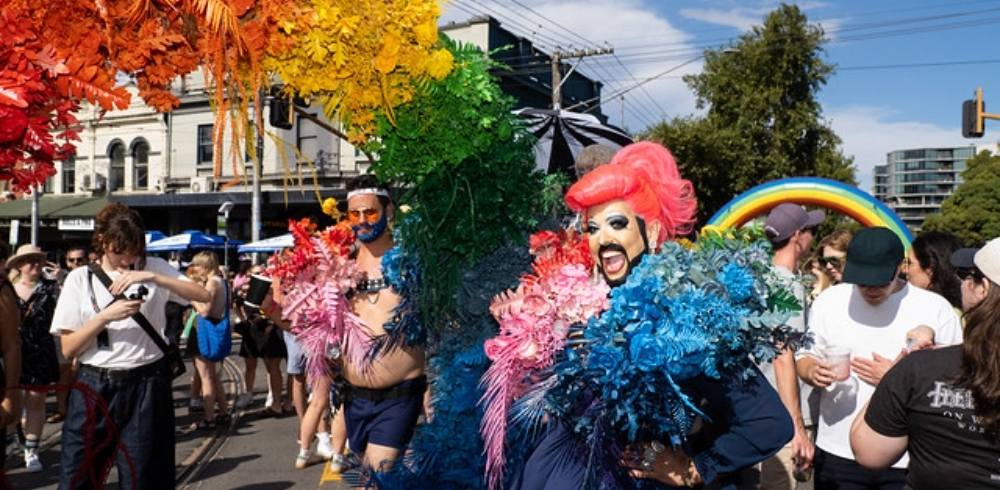


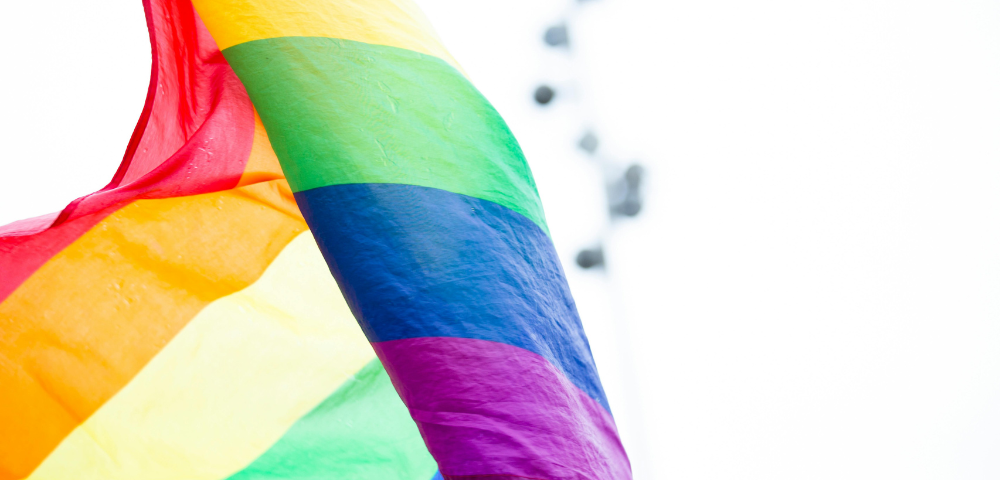
Yes, Roy, I agree with you that it is ironic that a Palestinian lesbian organization meets in Israel rather than the Palestinian Teritories. I don’t know what the Palestinian Authority’s position on lesbianism is, but I understand that for men, the penalty for gay sex is death. The exact opposite of Israel’s liberal policies.
Also worth noting is that gay men and lesbians serve openly and with no fuss in the Israeli Defense Forces.
Great article Lyndon. It’s good to hear that there’s one country in the Middle East that’s supportive of GLBT issues. Israel still has a way to go before equalising gay marriage rights, but at least they recognise those performed overseas. That kind of recognition seems a long way off here in Australia?
Just in response to Joan’s comments about ASWAT, isn’t it slightly ironic that they have to meet within Israel and not in the Palestinian Territories?
It was great to hear that Israel respects all nationalities and accepts people’s rights to live their lives as they wish.
I wish Lyndon had mentioned the pioneering work of ASWAT,the Palestinian Gay Woman’s organization that meets in the Women’s Center in Haifa; supported by many Israeli lesbian women as well, ASWAT struggles for both an end to the occupation and for the rights of Palestinian gay People. The group’s t-shirtreads, “My right/to live/to choose/to be,” as well as the many lesbian women who are part of the weekly vigils in Haifa and Jerusalem of Women in Black, an international anti-war group. Celebrating Israel’s “liberalness” towards gays when the seige of Gaza continues and thinking the two struggles for human dignity have no connection reflects a sadly limited queer cultural and social vision.
cool lyndon, thanks
great article lyndon. hope to read more of your work.
Congratulations SSO on publishing such a thoughtful piece.
This article adds humanity to a political issue. Not that it should be a political issue. We are just people.
I am fascinated by the tid bits of info, like 300-600 Palestinians seeking asylum in Israel and that the airline gave same sex couples free tickets.
This article shows that small steps are being made in other countries, and with patience and fortitude, one day we will all have equal rights.
Hi Lyndon
Just wanted to say thanks for the article on Israel.
My boyfriend is an Israeli, he lives in Jerusalem at the moment, until we can get his visa situation sorted out. Ahh the joys of the long distance relationship.
Im off to Israel for a month in September to visit him and also to visit the various HIV and GLBT organisations(as you might notice I work in HIV research, and used to work for ACON), its certainly going to be an interesting experience.
Anyways, just wanted to say thanks, its prompted some thinking for me, and I’ll be mailing it to Matan (my BF) so he can have a read.
This series touches the heart of humanity. People are people and all deserve respect and acceptance. I look forward to reading the situation in other countries
this series is an great concept to explore the current situation, in regards to the legal framework and cultural acceptance, of other countries, especially those that we are less familiar with.
Yes, it’s great to see positive coverage of Israel.
thankyou lyndon you are a star